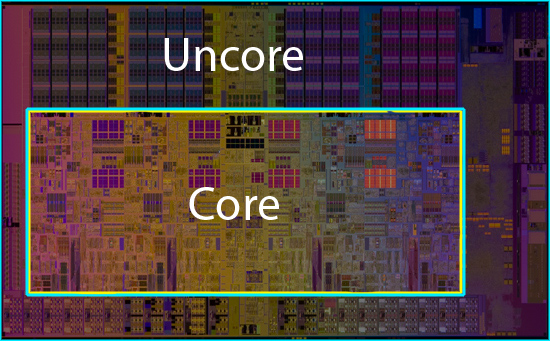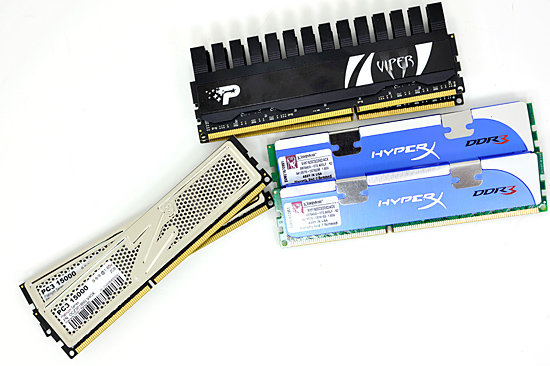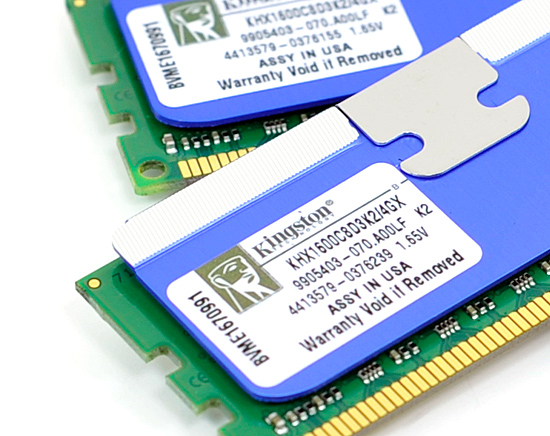Intel's Core i7 870 & i5 750, Lynnfield: Harder, Better, Faster Stronger
by Anand Lal Shimpi on September 8, 2009 12:00 AM EST- Posted in
- CPUs
Lynnfield's Un-Core: Faster Than Most Bloomfields
A few years ago I had a bet going with AMD's Ian McNaughton. We were at an AMD event where the Phenom architecture was first being introduced and he insisted that the L3 cache was part of the memory controller. This didn't make any sense to me so I disagreed. Minutes later a presentation slide went up on a projector talking about how the L3 cache and memory controller were on the same voltage plane; that's what he meant. Ian laughed a lot and to this day he holds it over my head.
The moral of the story is in Phenom and later in Nehalem, the processor is divided into two parts. Intel named them the core and the un-core. The "core" of these multi-core processors is made up of each individual processor core and its associated private caches (L1/L2). The "uncore" refers to everything else: PCIe controller, memory controller, DMI/QPI and the L3 cache.

The uncore isn't as critical for performance but is made up of a ton of transistors; roughly 400 million in the case of Lynnfield/Bloomfield (more if you count the PCIe controller). In order to save power, Intel uses slower transistors that have lower leakage for the un-core. As a result, the un-core can't clock up as high as the core and runs at a lower multiplier.
Take the Bloomfield Core i7 975 for example. The core runs at 25x BCLK (25 x 133MHz = 3.33GHz), but the un-core runs at 20x BCLK (20 x 133MHz = 2.66GHz). The rest of the chips, including Lynnfield, have slower un-cores:
| CPU | Socket | Core Clock | Un-Core Clock |
| Intel Core i7 975 Extreme | LGA-1366 | 3.33GHz | 2.66GHz |
| Intel Core i7 965 Extreme | LGA-1366 | 3.20GHz | 2.66GHz |
| Intel Core i7 950 | LGA-1366 | 3.06GHz | 2.13GHz |
| Intel Core i7 940 | LGA-1366 | 2.93GHz | 2.13GHz |
| Intel Core i7 920 | LGA-1366 | 2.66GHz | 2.13GHz |
| Intel Core i7 870 | LGA-1156 | 2.93GHz | 2.40GHz |
| Intel Core i7 860 | LGA-1156 | 2.80GHz | 2.40GHz |
| Intel Core i5 750 | LGA-1156 | 2.66GHz | 2.13GHz |
Here's another area where Lynnfield is better than the lower end Bloomfields: its uncore runs at 2.40GHz instead of 2.13GHz. The exception being the Core i5 750, its uncore is stuck at 2.13GHz as well. Once again, only the "Extreme" Bloomfields have a faster uncore.
Lynnfield's Memory Controller: Also Faster than Bloomfield
Intel only officially supports two memory speeds on Bloomfield: DDR3-800 and DDR3-1066. Obviously we're able to run it much faster than that, but this is what's officially validated and supported on the processors.
Lynnfield is a year newer and thus gets a tweaked memory controller. The result? Official DDR3-1333 support.

Three Lynnfield memory kits (left to right): OCZ, Patriot and Kingston
The same sort of rules apply to Lynnfield memory kits that we saw with Bloomfield. You don't want to go above 1.65V and thus all the kits we've seen run at 1.5V for the stock JEDEC speeds or 1.65V for the overclocked modules.

Like Bloomfield, 1.65V is the max we'll see on Lynnfield










343 Comments
View All Comments
tajmahal - Tuesday, September 8, 2009 - link
You fail to mention that Microcenter prices are for IN STORE PURCHASE ONLY. If you live about 6 driving hours away from a Microcenter like i do, then you're screwed.Chlorus - Tuesday, September 8, 2009 - link
Shhh! Don't spoil his self-righteous post with your troublesome facts!strikeback03 - Tuesday, September 8, 2009 - link
Does Microcenter have a limit on how many processors people can buy? If not, why isn't anyone buying these things and reselling them for less than the ~$280 that Newegg (and every other online retailer) do?Solema - Tuesday, September 8, 2009 - link
Anand,I know those prices you quoted are per-unit prices from Intel, but they are much more expensive than actual CPU costs. Given that I can get the following from Micro Center, and that I plan to overclock and run two 8800GTS 512's in SLI, what would you recommend?
i5 750 - $179
i7 920 - $199
i7 860 - $229
It still seems to me that the additional overclocking flexibility of the 920 (especially on stock voltage), coupled with the better multi-GPU performance would make that the best CPU to purchase, no? Given that P55 motherboards currently only retail for about $50 cheaper than many x58 boards, wouldn't the extra $70 cost for x58+i7 920 over a P55+i5 750 be worth it? You get better multi-GPU performance, better overclocking, better RAM performance, and future upgradeability to 6-core CPU's. What am I missing that would tip the scales in favor of the i5?
Pneumothorax - Tuesday, September 8, 2009 - link
the 920 for sure as you get a HT CPU for even cheaper than the 860. Both should overclock the same.dman - Tuesday, September 8, 2009 - link
So, do they support Hardware Virtualization? And don't give slack about not targeted at that market, specifically, does this support Windows 7 virtualization mode?I searched and didn't see it covered. I've read that the i5 and lower do not support vt-d, but, I'm not sure how that translates to Windows 7 "XP mode" support... I do need to review a bit more, would be nice if this was covered in the review.
I do know that this IS something that the Phenom family does support.
http://www.virtualization.info/2009/07/intel-core-...">http://www.virtualization.info/2009/07/...core-i3-...
ash9 - Tuesday, September 8, 2009 - link
No Virtalization!! That maybe huge for corporate setups,how did I miss that.
It should have been reported
has407 - Wednesday, September 9, 2009 - link
VT-x != VT-d. You want, and may need, VT-x. Most people don't need VT-d, much less know what to do with it or have a system that can make use of it--if you do, you're very unlikely to be using one of these CPUs.VT-x is Intel's name for processor virtualization features; it is part of the processor. All Core iX CPUs support it. VT-x is required for some hypervisors, (e.g., MSFT HYperV), but not all, although most (all?) require it for running 64-bit guests.
VT-d is Intels name for for IO virtualization (specifically "directed IO"); it is, or has been, part of the northbridge. For VT-d to be useful, you need a chipset that supports it; a MB/BIOS that supports it; and a hypervisor that knows how to use it. VT-d is primarily of interest to VM's that want to dedicate direct access to hardware by guests, and avoid the overhead of the hypervisor for that IO.
When you see "CPU X supports vT-d", it means the chipset for CPU X supports VT-d (the P55 supports VT-d). Whether MB/BIOS vendors choose to support it is another matter. Moreover, support for VT-d isn't simply yes or no; support varies by chipset (e.g., the P55, like the rest, support virtualizating a subset of interfaces).
In short:
1. Based on Core iX chipset capabilities (e.g., P55, X58), VT-d support is an MB vendor decision--not a function of the CPU model.
2. Which vendors support VT-d, and to what extent, is more often than not clear as mud, and the topic of much discussion in some threads.
3. If VT-d is important to you, you're probably running a heavy virtualized workload on an MP system with 10Gbe or very fast DAS--certainly not a Core iX. (Only exception of interest to others might be for access to GPU's by VMs)
What the new processors throw into the mix is an integrated PCIe controller, which also means an integrated DMA controller (at least I hope it does). Whether that supports VT-d is unknown (I haven't been able to find a definitive answer).
Gary Key - Tuesday, September 8, 2009 - link
VT-d is enabled on the i7/870-860. It is not enabled on the i5/750, just VT-x is available on it. I am working on Windows 7 XP mode as we speak.Jakall78 - Tuesday, September 8, 2009 - link
Reading this site for years, but there is something wrong going on here. Besides some slideshow pictures from Intel and 2-3 tests... there is nothing. That is not the way reviews are done. Look at the SSD reviews, THAT is a review(both of them actually). Now please look at this reviewhttp://translate.google.com/translate?prev=hp&...">http://translate.google.com/translate?p...mp;sl=ro...
and say it`s not better...
* I`m not making any false advertising here, I just found a better review.